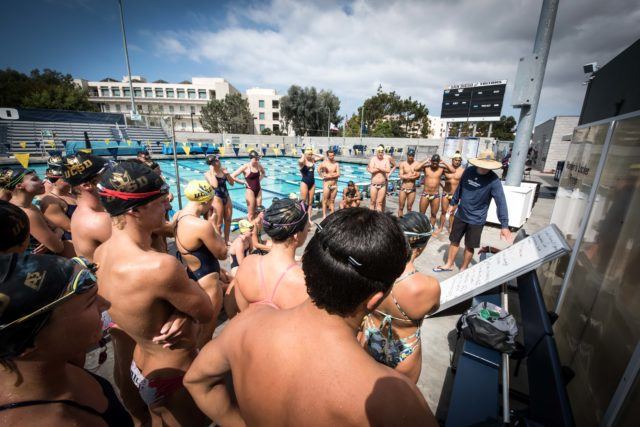By Braden Keith on SwimSwam

The U.S. federal government has raised the threshold for which employees are due overtime wages in the United States and which are not.
Currently, most workers who earn at least $684 per week ($35,568 per year) are exempt from overtime wages federally, though states can set higher thresholds and more restrictive requirements on that. That threshold was set in 2019. Beginning on July 1, 2024, however, that number will increase to $884 per week, or roughly $43,888 per year. Further, the Department of Labor says that the threshold will be reviewed every three years “so they keep pace with changes in worker salaries, ensuring that employers can adapt more easily because they’ll know when salary updates will happen and how they’ll be calculated.”
This will mean a number of American swim coaches will be due significant raises – or significant adjustments to their workloads.
From the Department of Labor:
Overtime protections have been a critical part of the FLSA since 1938 and were established to protect workers from exploitation and to benefit workers, their families and our communities. Strong overtime protections help build America’s middle class and ensure that workers are not overworked and underpaid.
Some workers are specifically exempt from the FLSA’s minimum wage and overtime protections, including bona fide executive, administrative or professional employees. This exemption, typically referred to as the “EAP” exemption, applies when:
- An employee is paid a salary,
- The salary is not less than a minimum salary threshold amount, and
- The employee primarily performs executive, administrative or professional duties.
While the department increased the minimum salary required for the EAP exemption from overtime pay every 5 to 9 years between 1938 and 1975, long periods between increases to the salary requirement after 1975 have caused an erosion of the real value of the salary threshold, lessening its effectiveness in helping to identify exempt EAP employees.
The department’s new overtime rule was developed based on almost 30 listening sessions across the country and the final rule was issued after reviewing over 33,000 written comments. We heard from a wide variety of members of the public who shared valuable insights to help us develop this Administration’s overtime rule, including from workers who told us: “I would love the opportunity to…be compensated for time worked beyond 40 hours, or alternately be given a raise,” and “I make around $40,000 a year and most week[s] work well over 40 hours (likely in the 45-50 range). This rule change would benefit me greatly and ensure that my time is paid for!” and “Please, I would love to be paid for the extra hours I work!”
It is common, even at the top level of college swimming, for coaches to have starting salaries set exactly to this overtime-exempt threshold. Michael Baric at NC State, and both new Ohio State hires last season, for example, were all given the same salary – $35,568 per year.
In the United States, overtime is calculated on a weekly basis, with employees receiving 1.5x their regular hourly pay for every hour over 40 worked every week. While there are ebbs-and-flows to the swimming season, the practicality of it is that between practices, recruiting, and meets, it is inevitable that coaches will work more than 40 hours in many parts of the season.
Under the current overtime-exempt limit, these coaches would have to be paid $25.65 per hour of overtime worked. That makes the break-even point on raising coaches’ salaries versus just paying them the overtime about 8 hours/week, if extrapolated to the entire year, without accounting for the increased administrative burden of tracking overtime hours.
The change will also impact many local clubs. While salary data for these programs is not publicly-available in most cases, anecdotally, many of them likewise seek to pay close to this overtime-exempt threshold.
This was one of two paradigm-shifting new rules that the Department Labor has approved in recent weeks. The other is the striking-down of most non-compete clauses in the United States. While uncommon at the collegiate level, many club programs use non-compete clauses to prevent their coaches from leaving their positions to open a competing club nearby.
Both of these new rules shift the balance of power toward the coaches (employees) while adding more financial pressures onto a sport that is already facing them from a number of different angles.
SwimSwam: New US Department of Labor Rules Will Impact How Club, College Swim Teams Do Business



















You must be logged in to post a comment Login